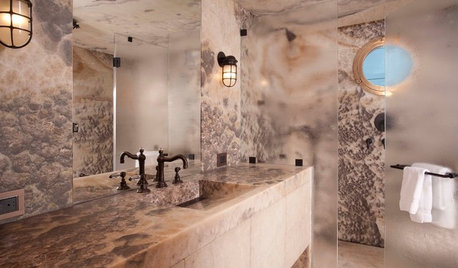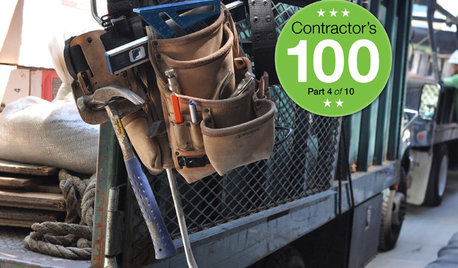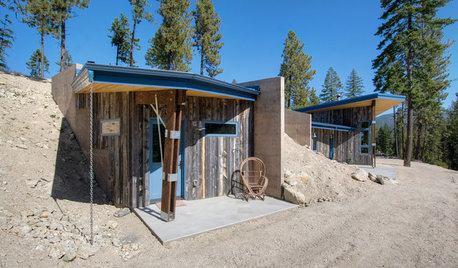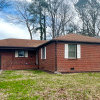Radon Test
jnh004
12 years ago
Related Stories

HEALTHY HOMEWhat's the Deal With Radon?
Get the facts on testing for this cancer-causing gas — and how to make your home safe if it shows up
Full Story
HEALTHY HOMEGet the Lead Out: Lead Safety at Home
Keep your family safe by properly testing for and dealing with lead in old painted surfaces, water and soil
Full Story
HEALTHY HOMEDetox Your Kitchen for the Healthiest Cooking
Maybe you buy organic or even grow your own. But if your kitchen is toxic, you're only halfway to healthy
Full Story
STONEGive In to Your Wild Side With Exotic Granite and Onyx
Go beyond the standard slab with these radiant and rare stones
Full Story
PRODUCT PICKSGuest Picks: 20 Perfect Housewarming Gifts
Celebrate anyone's new digs with thoughtful, inspired gifts as low as $10
Full Story
REMODELING GUIDESContractor Tips: What Your Contractor Really Means
Translate your contractor's lingo to get the communication on your home project right
Full Story
BASEMENTSBasement of the Week: A Creative Space for Kids and Storage for All
With mudroom organizers, laundry and a well-organized space for crafts, this basement puts a Massachusetts home in balance
Full Story
MATERIALSInsulation Basics: What to Know About Spray Foam
Learn what exactly spray foam is, the pros and cons of using it and why you shouldn’t mess around with installation
Full Story
KITCHEN DESIGNHouzz Quiz: Which Kitchen Backsplash Material Is Right for You?
With so many options available, see if we can help you narrow down the selection
Full Story
HOUZZ TOURSHouzz Tour: Having Fun With a Half-Buried House
Layers of dirt help create energy efficiency and an unusual look on a steep slope in Washington state
Full Story








berniek
steveinjersey
Related Professionals
Ken Caryl Architects & Building Designers · Eagan General Contractors · Athens General Contractors · Brighton General Contractors · Browns Mills General Contractors · Jackson General Contractors · Jefferson Valley-Yorktown General Contractors · Palestine General Contractors · Richfield General Contractors · Saginaw General Contractors · Seal Beach General Contractors · Toledo General Contractors · Waianae General Contractors · Waimalu General Contractors · Bellflower Home StagersLoveInTheHouse
maurenemm
logic
dreamgarden
sschriver1_yahoo_com
badgergrrl
logic